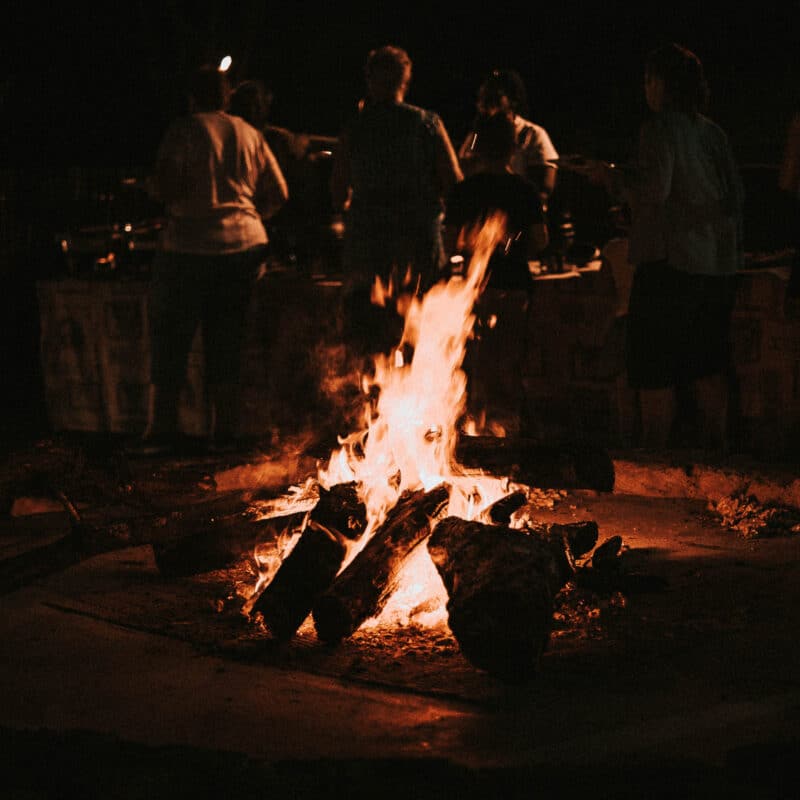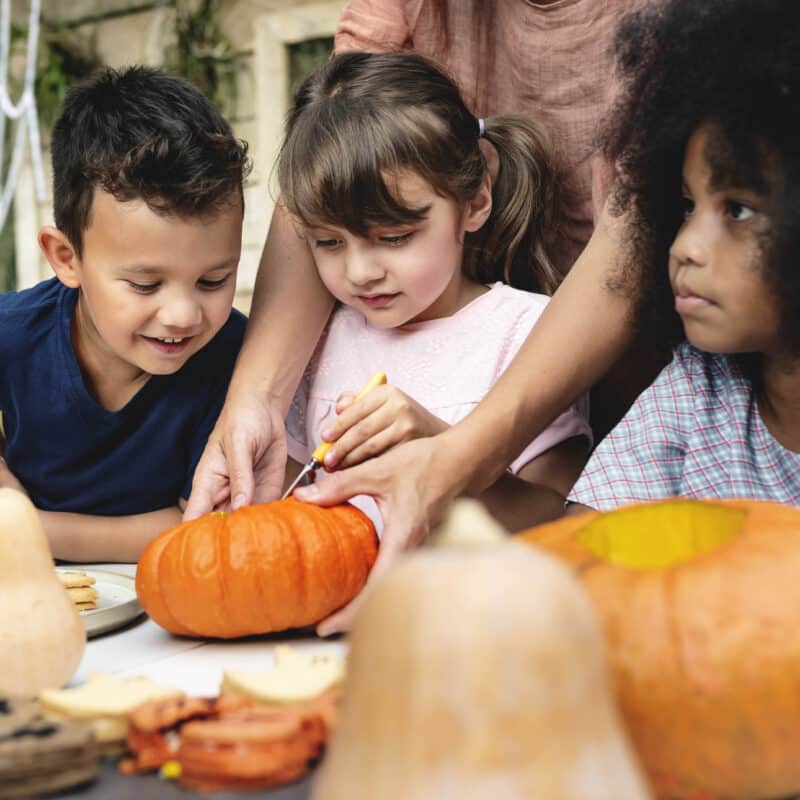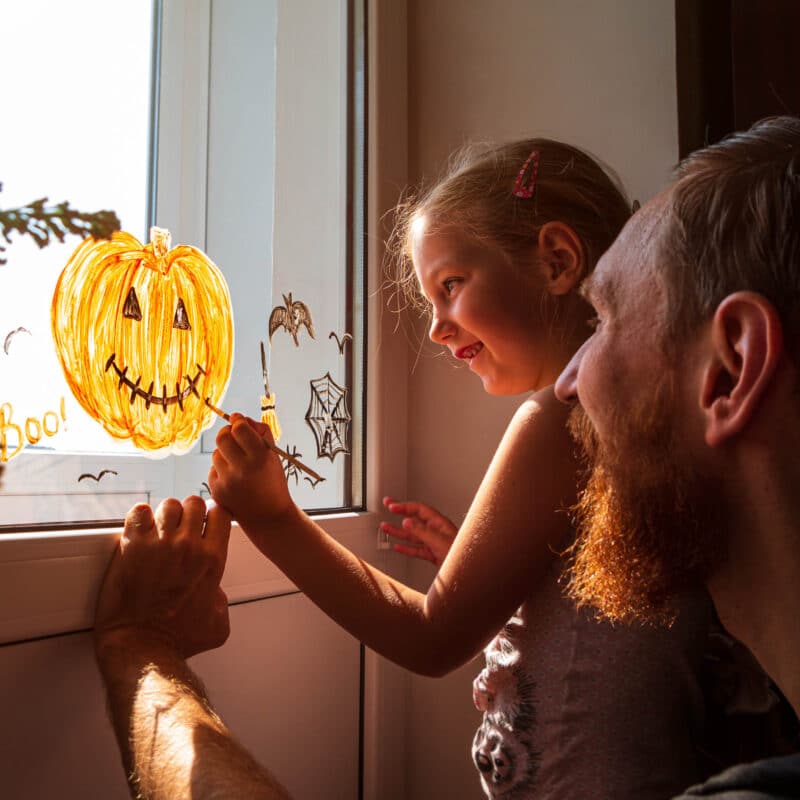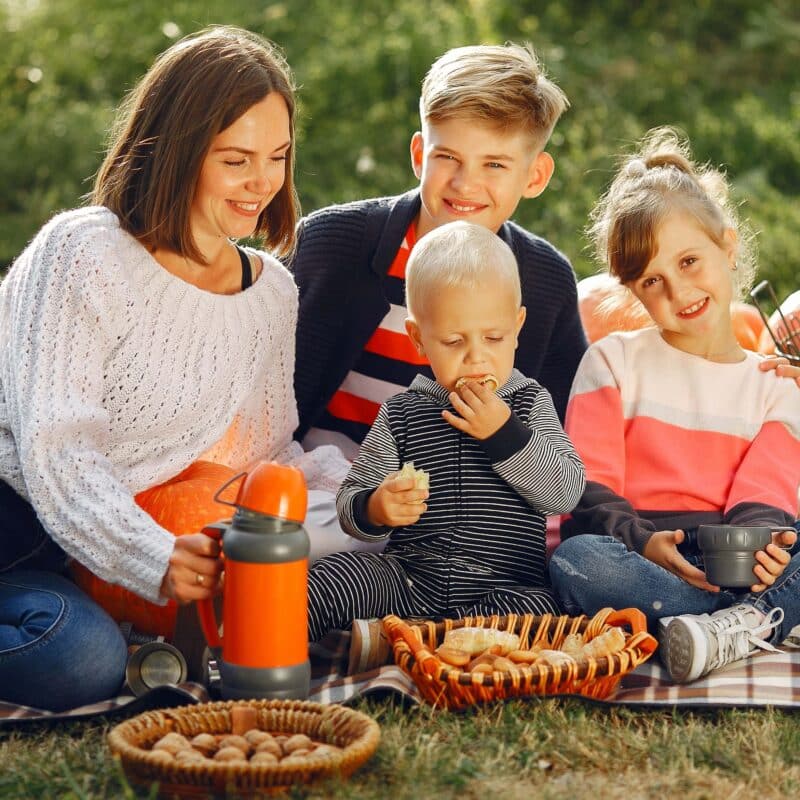
It’s that time of year when summer fades into Fall, kids are back in school, and family routines settle into a new rhythm. October brings the excitement of Halloween—candy, costumes, pumpkin carving, and the thrill of a night spent with friends. But beyond the fun, a question often comes up: what does Halloween really mean, and should Christians celebrate it? Let’s take a look.
The origins of Halloween
 The first Halloween was traced to an ancient Celtic festival called Samhain (pronounced “sow-in”), a pagan ritual that marked the end of the harvest and the beginning of winter. It was believed that on October 31st, the boundary between the living and the dead blurred, allowing spirits to roam the earth. To ward off these spirits, people lit bonfires and wore costumes.
The first Halloween was traced to an ancient Celtic festival called Samhain (pronounced “sow-in”), a pagan ritual that marked the end of the harvest and the beginning of winter. It was believed that on October 31st, the boundary between the living and the dead blurred, allowing spirits to roam the earth. To ward off these spirits, people lit bonfires and wore costumes.
Later, as Christianity spread through Europe, the church established All Saints’ Day on November 1st to honor Christian martyrs and saints. The night before became known as All Hallows’ Eve, eventually shortened to Halloween. Over time, the holiday lost most of its religious and spiritual meaning and evolved into the more secular celebration we know today.
Knowing about its pagan roots and the many spooky or gory interpretations of Halloween decorations and Halloween costumes in today’s culture, should Christians participate in Halloween?
 As with any decision, a Christian needs to consider how to be “in” the world and not “of” the world, depending on their convictions, their family, and their community. Scripture doesn’t give a direct command about Halloween, but it calls us to be people of light, discernment, and purpose. We can reference 1 Thessalonians 5:21-22 (ESV) to remember: “Test everything; hold fast what is good. Abstain from every form of evil.”
As with any decision, a Christian needs to consider how to be “in” the world and not “of” the world, depending on their convictions, their family, and their community. Scripture doesn’t give a direct command about Halloween, but it calls us to be people of light, discernment, and purpose. We can reference 1 Thessalonians 5:21-22 (ESV) to remember: “Test everything; hold fast what is good. Abstain from every form of evil.”
For families in communities where counter-Christian culture looms large and Halloween takes on prominence, they may feel rightly convicted to not engage with Halloween at all. Instead they may meet with their church, pray over their community, and focus on celebrating All Saints’ Day instead.
For largely Christian communities where decorations and costumes are benign and families  participate in the holiday together, Halloween can present an opportunity for fellowship. It can be a chance to use that time together, even with friends, to discuss where Halloween originated, and why “we, as a family, choose to bring light to an otherwise dark day.”
participate in the holiday together, Halloween can present an opportunity for fellowship. It can be a chance to use that time together, even with friends, to discuss where Halloween originated, and why “we, as a family, choose to bring light to an otherwise dark day.”
Should Christians Participate in Halloween?
Here are three different approaches to consider:
1.Participation with Discernment
Believers who take on a view of Halloween as a cultural tradition that can be redeemed. Dressing up as superheroes or animals and enjoying candy and trick-or-treating while usingthe opportunity to meet neighbors, build relationships, or hand out Gospel-related  goodies alongside candy.
goodies alongside candy.
Choose costumes and decorations that reflect light, joy, and fun—not fear, gore, or darkness.
2. Alternative Celebrations
Many churches host “Harvest Festivals” or “Trunk or Treat” events as positive alternatives. These provide a safe, family-friendly environment and a chance to share the love of Jesus in a non-threatening way.
Invite unchurched friends or neighbors to these events! They’re great outreachopportunities.
3. Total Avoidance
Other Christians feel convicted to avoid Halloween entirely due to its dark origins or  current associations with witchcraft and fear. That’s okay too. Scripture reminds us to honor personal convictions (Romans 14:5).
current associations with witchcraft and fear. That’s okay too. Scripture reminds us to honor personal convictions (Romans 14:5).
Consider using the night for prayer, worship, or even opening your home for fellowship.
Whether you engage with Halloween or not, the most important thing is to approach it with intentionality and Christlike love. Don’t judge others who make different choices. Instead, look for ways to be salt and light in your community (Matthew 5:13–16), no matter what day it is.
Let’s redeem every opportunity to point people to Jesus, even on Halloween.







